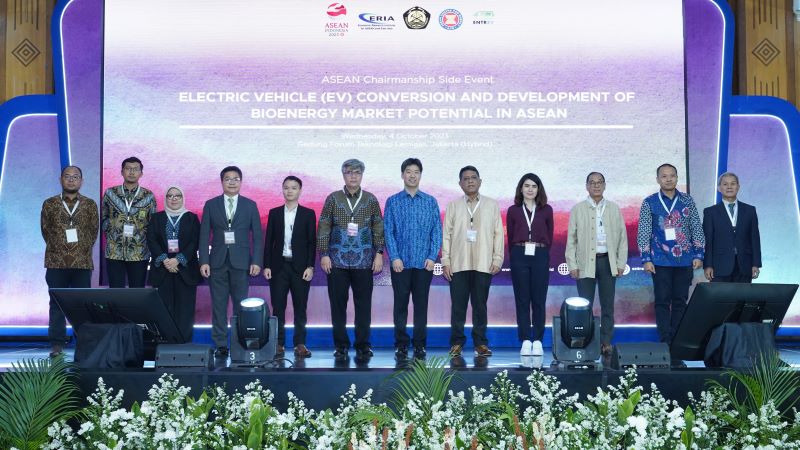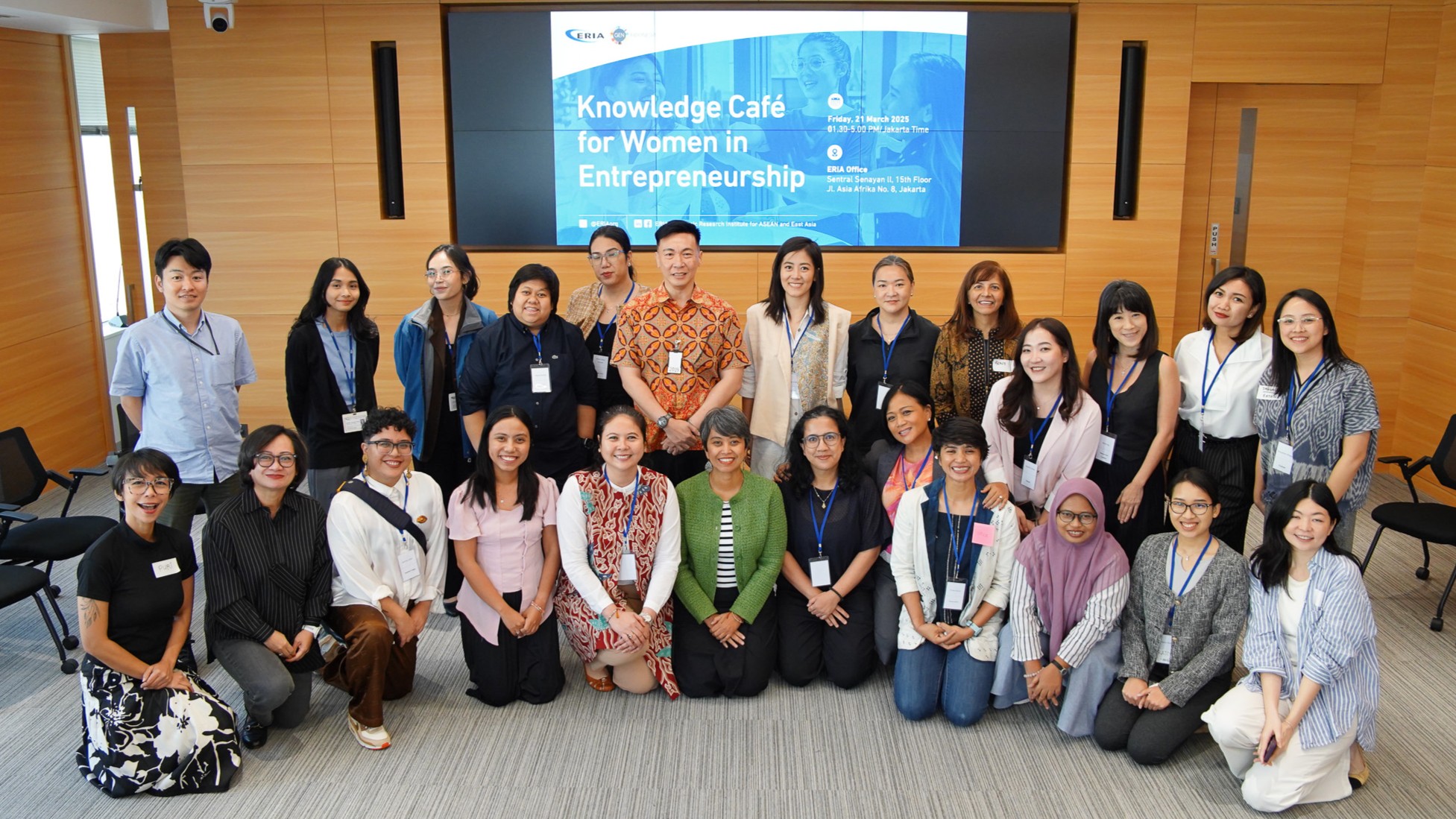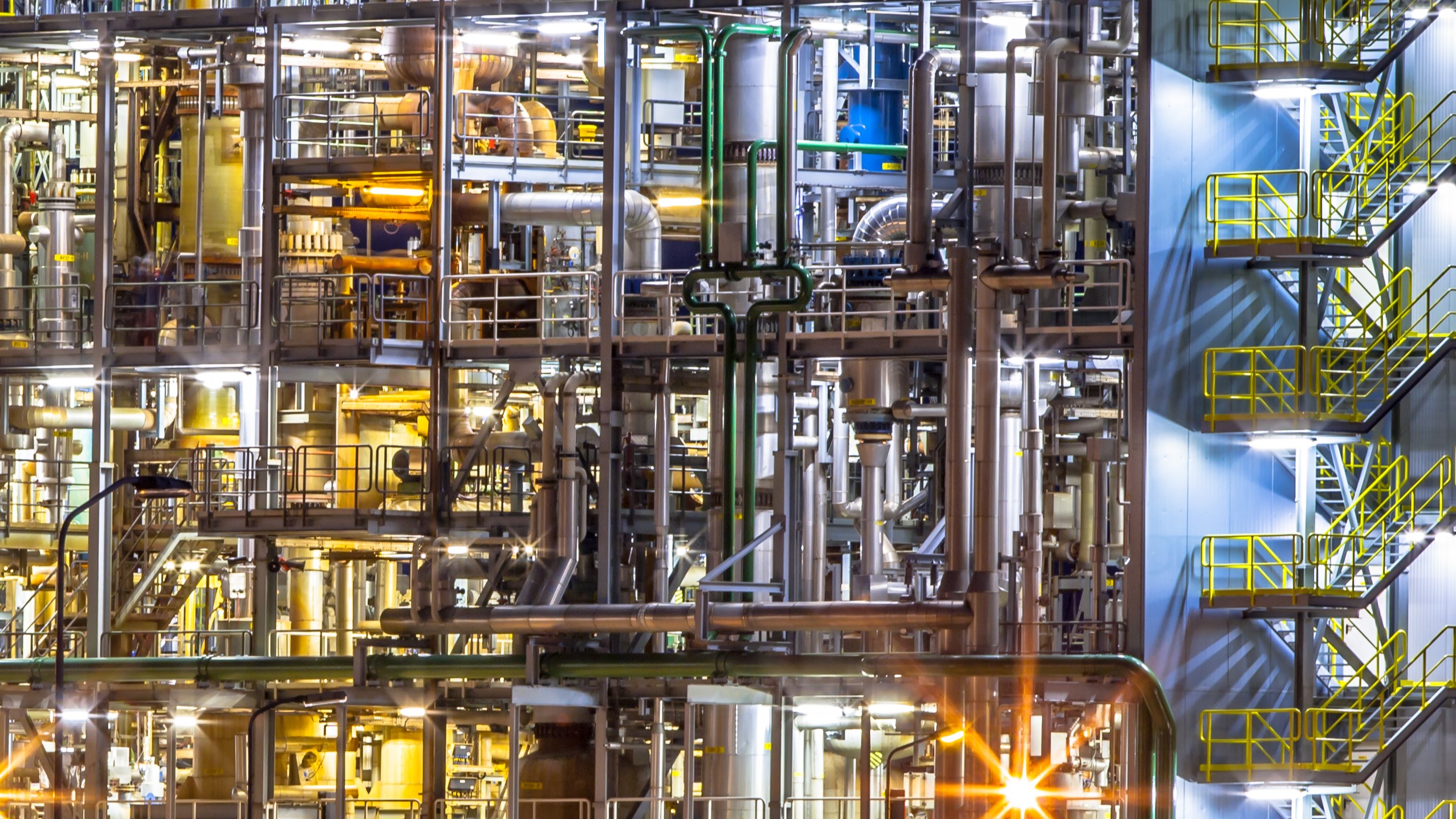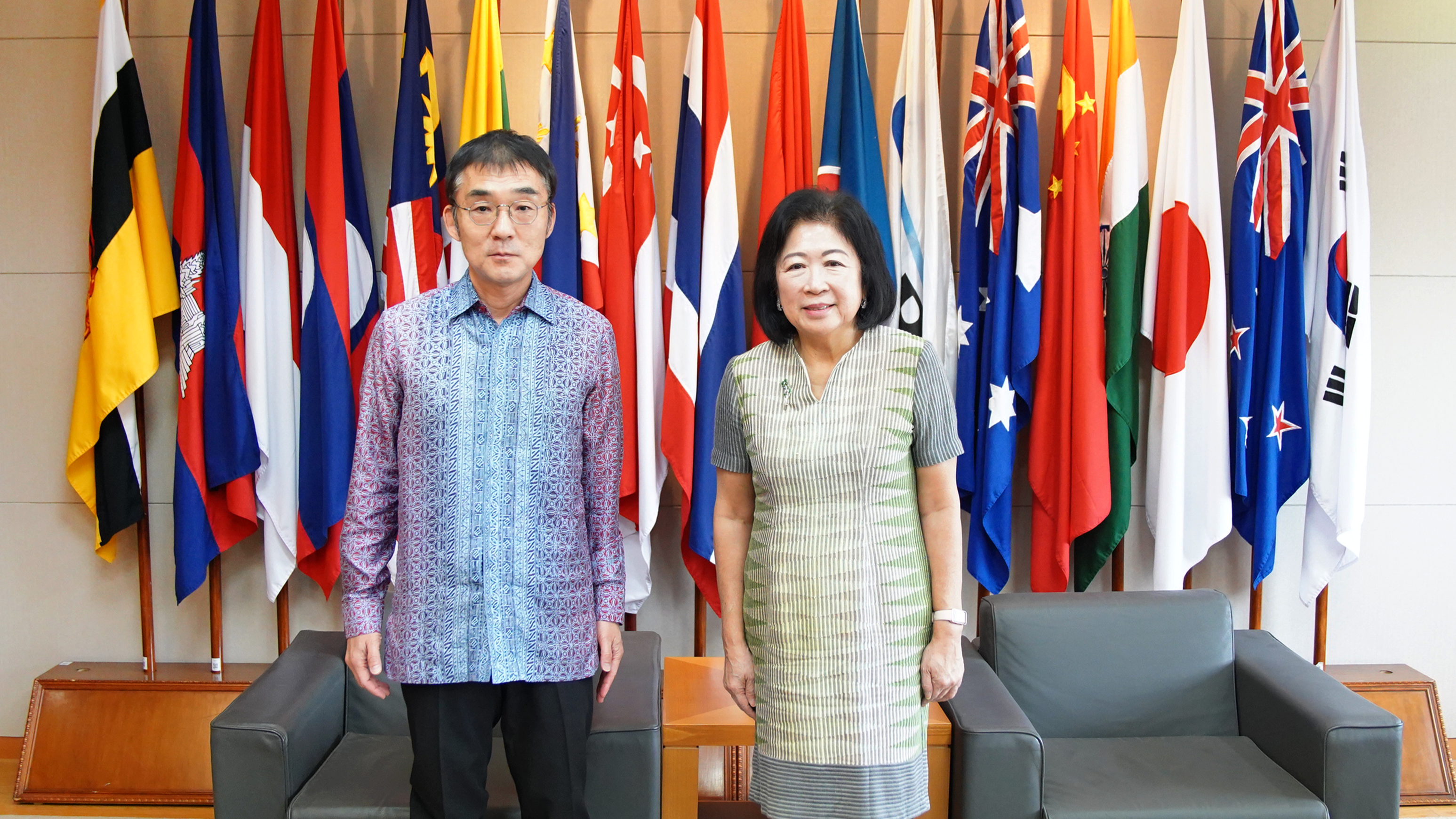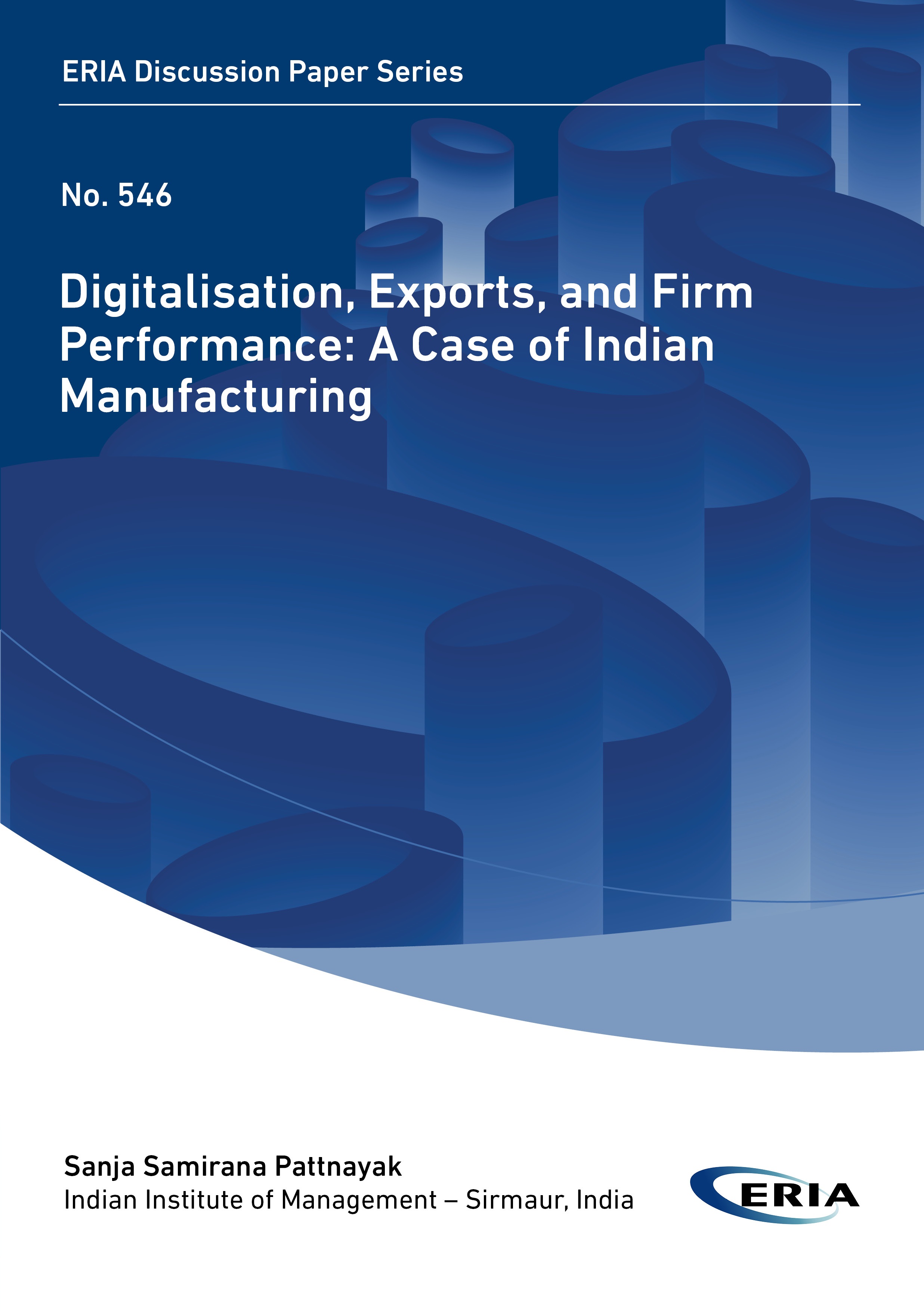ERIA Hosts ASEAN Chairmanship Side Events on EV Conversion and Bioenergy Market Potential in ASEAN
Date
4 October 2023Category
WebinarTopics
Innovation and Technology, EnergyShare Article:
Print Article:
Jakarta, 4 October 2023: ERIA, in collaboration with Indonesia's Ministry of Energy and Mineral Resources (MEMR) and the ASEAN Centre for Energy (ACE), organised two important side events in conjunction with the Indonesia ASEAN Chairmanship 2023 on the Conversion of Internal Combustion Engine (ICE) Vehicles to Electric Vehicles (EVs): Focus on Motorcycles, and the Development of Bioenergy Market Potential in ASEAN.
The workshops, opened by ERIA's Chief Operating Officer Koji Hachiyama, underscored the fact that ASEAN countries have devised strategies to attain low-emissions mobility, primarily through prioritising the electrification of transportation. Hachiyama said the attainment of a significant market share of electric vehicles is challenging without the implementation of subsidies and other strategies aimed at mitigating the costs associated with purchasing and operating such vehicles. He also emphasised the necessity for ASEAN to establish a sustainable reliance on bioenergy, which entails the formulation of policies which take into account the potential impacts on food supply chains.
The morning workshop on EVs aimed at analysing various aspects around Indonesia’s policy on conversity of internal combustion engine vehicles into EVs. Among those aspects are viability, potential impacts and the suitable business model.
Scene setting presentations on sustainable EV use in Southeast Asian countries were delivered by Ir Senda Hurmuzan Kanam, Head of Electricity Testing and Survey Main Center of the Directorate General of New, Renewable Energy and Conservation of the MEMR; Dr Zulfikar Yurnaidi, Manager of the ASEAN Centre for Energy; and Dr Alloysius Joko Purwanto, ERIA Energy Economist.
The EV workshop consisted of two panel discussions. The first explored the economics of electric motorcycles and the impacts on energy systems, emissions, and air pollution, and looked toward suitable business models for electric motorcycles in Southeast Asian countries. The second discussed suitable business models for (converted) electric motorcycles in Southeast Asian countries.
The afternoon workshop on bioenergy discussed the current development of bioenergy in ASEAN, including a future regional bioenergy shortage, demand, and supply possibilities. The workshop aimed to align with PED Priority Number 4.4, which emphasises the analysis of the bioenergy market's potential and advocates for the exploration of next-generation biofuels as a longer-term solution, aligning with the integration of energy and agriculture for the mutual security of both sectors. The first panel discussed bioenergy development status, potential, possible regional shortages, and future bioenergy supply and demand in ASEAN countries. The second delved into the potential for establishing a sustainable bioenergy market in ASEAN.
It is imperative for ASEAN to foster collaboration to mitigate potential risks to the future regional food supply arising from bioenergy growth within the region. There is a need to accelerate the formulation of policy measures at the ASEAN level pertaining to the advancement of sustainable bioenergy and the bioenergy market. This includes a particular focus on second-generation bioethanol and green biofuels, advanced biofuels, and the practice of biomass co-firing.
Closing the workshop, Toru Furuichi, ERIA Director General for Research and Policy Design Administration, conveyed three key messages. First, electric vehicles can play a crucial role in ASEAN countries' efforts to reduce reliance on traditional fuels and combat greenhouse gas emissions, however, strategy on EVs needs a holistic, comprehensive, and integrated approach that considers various aspects including power generation, critical mineral mining, traffic congestion, it’s the wider economic impacts. Second, boosting electric vehicle adoption can be achieved through measures including converting conventional vehicles. In countries such as Indonesia, Vietnam, and Thailand, where motorcycles dominate transportation, converting conventional motorcycles to electric ones can be an effective strategy, without adding more to the existing vehicle fleets.Third, ASEAN countries possess abundant bioenergy resources which can reduce dependence on fossil fuels and mitigate emissions across the energy system. To these potentials, ASEAN must work together to ensure the sustainability of its bioenergy and to create a more active bioenergy trade in a more integrated regional market. Without trade, ASEAN market equilibrium is below both supply and demand and the maximum potential of the market of each country becomes also smaller than demand and supply.
